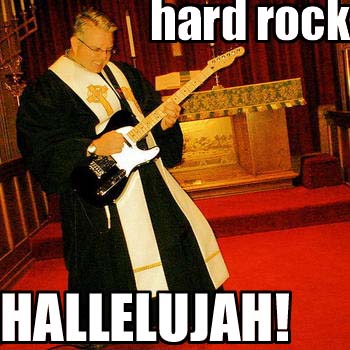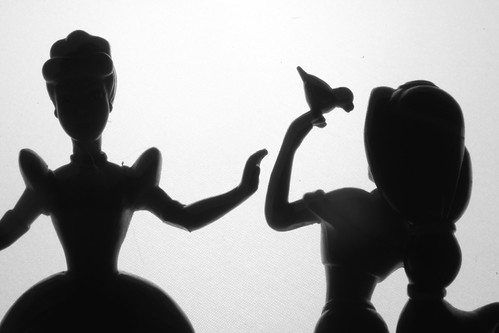In my first post about interpreting conflicting advice, I talked about "Having an Open Mind vs. Stick to Your Guns". In that post, I mostly discussed receiving criticism and how to both understand and address the underlying problem and fix it in a way that stays consistent with your vision of the story. Recently, as I've been rereading and editing The Mark of Flight, one bit of conflicting advice has been coming up over and over in my head:
Be Passionate About Your Work vs. Have Distance
Now, I don't usually have issues being passionate about my work; a more apt description of my relationship to my writing would probably be "obsessed". I always think about at least one of the stories I'm working on, to the extent that I create specialized driving playlists so I can direct my attention-deficient brain toward thinking about my characters, envisioning new scenarios, and teasing new motivation possibilities from song-lyrics on my one-hour commute. But despite that passion, I sometimes lose that battle against my inner-critic.
Time for a trip to the anecdotal ward! Yippee!
In university, I joined a writing workshop that nearly made me quit writing. I won't go into the details, but after my humiliating first session, I set aside The Mark of Flight and started writing literary short stories, trying to prove to everyone in that class that I wrote genre fiction because I liked it, not because I was incapable of writing something else. The resulting stories were decent, I guess, but writing it didn't excite me, didn't set me dreaming, and didn't make me happy.
So I stopped. I hid behind fan-fiction and RPGs, leaving the "real writing" for when it no longer hurt so much to face the opinions of my classmates. It took me a while to get over the feeling that The Mark of Flight was un-salvageable crap. Eventually, however, the gravity of my world and characters drew me back in. Getting a full-manuscript request from an agent was a good boost to the ego as well, especially when one of my classmates announced it to the teacher in class, and everyone made the *shock!face* (right).
There were a few things I did wrong. I mean, really, the first thing I did wrong was to submit a piece of my novel to a writing workshop rather than a short-story. It's really hard to critique independent chapters of something, but I hadn't written a short story since high school. The larger mistake was letting the opinions of my classmates make me embarrassed to write the genre I liked.
I'll let you in on a secret: writing is a lot of work.
We dream, write, rewrite, fret, brainstorm, edit, rewrite again, scrap, shred, cobble-back-together, and if we're lucky, we get something that's good enough to be looked at by a professional. That professional will then point out all the areas we still need to improve before that puppy can ever see the business-side of a printing press. Do you really want to waste all that time writing something you don't care about, just because you think it's more literary/marketable/socially-acceptable? I don't, and that's where "be passionate about your work" comes in. You'd better love it like that song you never stop playing, because you're going to be spending a lot of time with it.
My second mistake in that workshop was submitting a piece of work I wasn't ready to receive criticism or opinions on. I address this a bit in my post about being ready to receive criticism, but I'd like to take it in a different direction now.
CRITIQUE POINT: criticism is a constructive analysis of what is and isn't working in your story; opinion is a subjective assessment of the quality of your work.
Criticism: "The motivation for your villain isn't clear"/"You have a very independent heroine"
Opinion: "Your villain sucks"/"I love your heroine!"
Negative opinion has no place in a workshop. The understanding is that the work being submitted is not perfect, and therefore is not ready to be judged. I would also argue that positive opinion does little good without being supplemented by an analysis. It would be like looking at a half-finished sculpture and saying "OMG it's so great don't change it you're so amazing!" Which is what I imagine happened with the Venus de Milo. Just think, if someone had offered a critique, we could have had this:
Not cool, people.
Anyway, I had assumed that the instructor of the workshop would try to mitigate opinions and direct my classmates toward making constructive critiques, but that turned out not to be true. The first comment I received on MoF in that workshop was: "I hated it". (Coincidentally, that was from the same classmate who later announced to the class that I had gotten a request for a full.)
But guess what? If I get published, no one is going to mitigate opinions on Amazon or book review blogs. They key here is to have enough distance from your work that you can let those negative opinions go without making you want to chuck your laptop out a window a la Psychopomp and Narfi.
My reason for submitting the chapter I did was because I had written it recently. I thought having a sample of my most recent writing would be better than a sample I had already edited, but I didn't have enough distance from the work to see it clearly. Writing is like getting a bad haircut. While you've still got it, you'll probably feel pretty sensitive about negative commentary. You don't want everyone to tell you it looks like crap, even if it does. But a few years later, you can look at those pictures of yourself, and when your friend points out that your bangs are uneven, you can laugh.
It's not that I've gotten loads better at taking negative opinions, I just realized that the very first draft is still too ugly and vulnerable for me. I need to realize some of my own mistakes and hack at the piece a bit more before I feel comfortable handing the sword to someone else.
PLAY WITH ME: When do you think it's necessary to have distance? What methods do you use to gain distance?
Now, I don't usually have issues being passionate about my work; a more apt description of my relationship to my writing would probably be "obsessed". I always think about at least one of the stories I'm working on, to the extent that I create specialized driving playlists so I can direct my attention-deficient brain toward thinking about my characters, envisioning new scenarios, and teasing new motivation possibilities from song-lyrics on my one-hour commute. But despite that passion, I sometimes lose that battle against my inner-critic.
Time for a trip to the anecdotal ward! Yippee!
In university, I joined a writing workshop that nearly made me quit writing. I won't go into the details, but after my humiliating first session, I set aside The Mark of Flight and started writing literary short stories, trying to prove to everyone in that class that I wrote genre fiction because I liked it, not because I was incapable of writing something else. The resulting stories were decent, I guess, but writing it didn't excite me, didn't set me dreaming, and didn't make me happy.
 |
| Best example. |
There were a few things I did wrong. I mean, really, the first thing I did wrong was to submit a piece of my novel to a writing workshop rather than a short-story. It's really hard to critique independent chapters of something, but I hadn't written a short story since high school. The larger mistake was letting the opinions of my classmates make me embarrassed to write the genre I liked.
I'll let you in on a secret: writing is a lot of work.
We dream, write, rewrite, fret, brainstorm, edit, rewrite again, scrap, shred, cobble-back-together, and if we're lucky, we get something that's good enough to be looked at by a professional. That professional will then point out all the areas we still need to improve before that puppy can ever see the business-side of a printing press. Do you really want to waste all that time writing something you don't care about, just because you think it's more literary/marketable/socially-acceptable? I don't, and that's where "be passionate about your work" comes in. You'd better love it like that song you never stop playing, because you're going to be spending a lot of time with it.
HAVE DISTANCE
My second mistake in that workshop was submitting a piece of work I wasn't ready to receive criticism or opinions on. I address this a bit in my post about being ready to receive criticism, but I'd like to take it in a different direction now.
CRITIQUE POINT: criticism is a constructive analysis of what is and isn't working in your story; opinion is a subjective assessment of the quality of your work.
Criticism: "The motivation for your villain isn't clear"/"You have a very independent heroine"
Opinion: "Your villain sucks"/"I love your heroine!"
Negative opinion has no place in a workshop. The understanding is that the work being submitted is not perfect, and therefore is not ready to be judged. I would also argue that positive opinion does little good without being supplemented by an analysis. It would be like looking at a half-finished sculpture and saying "OMG it's so great don't change it you're so amazing!" Which is what I imagine happened with the Venus de Milo. Just think, if someone had offered a critique, we could have had this:
Not cool, people.
Anyway, I had assumed that the instructor of the workshop would try to mitigate opinions and direct my classmates toward making constructive critiques, but that turned out not to be true. The first comment I received on MoF in that workshop was: "I hated it". (Coincidentally, that was from the same classmate who later announced to the class that I had gotten a request for a full.)
But guess what? If I get published, no one is going to mitigate opinions on Amazon or book review blogs. They key here is to have enough distance from your work that you can let those negative opinions go without making you want to chuck your laptop out a window a la Psychopomp and Narfi.
My reason for submitting the chapter I did was because I had written it recently. I thought having a sample of my most recent writing would be better than a sample I had already edited, but I didn't have enough distance from the work to see it clearly. Writing is like getting a bad haircut. While you've still got it, you'll probably feel pretty sensitive about negative commentary. You don't want everyone to tell you it looks like crap, even if it does. But a few years later, you can look at those pictures of yourself, and when your friend points out that your bangs are uneven, you can laugh.
It's not that I've gotten loads better at taking negative opinions, I just realized that the very first draft is still too ugly and vulnerable for me. I need to realize some of my own mistakes and hack at the piece a bit more before I feel comfortable handing the sword to someone else.
PLAY WITH ME: When do you think it's necessary to have distance? What methods do you use to gain distance?
























